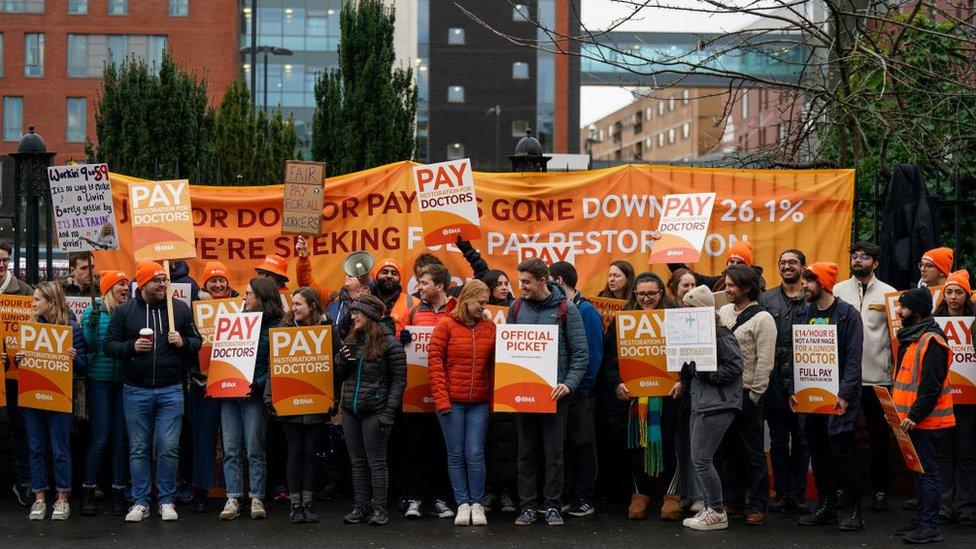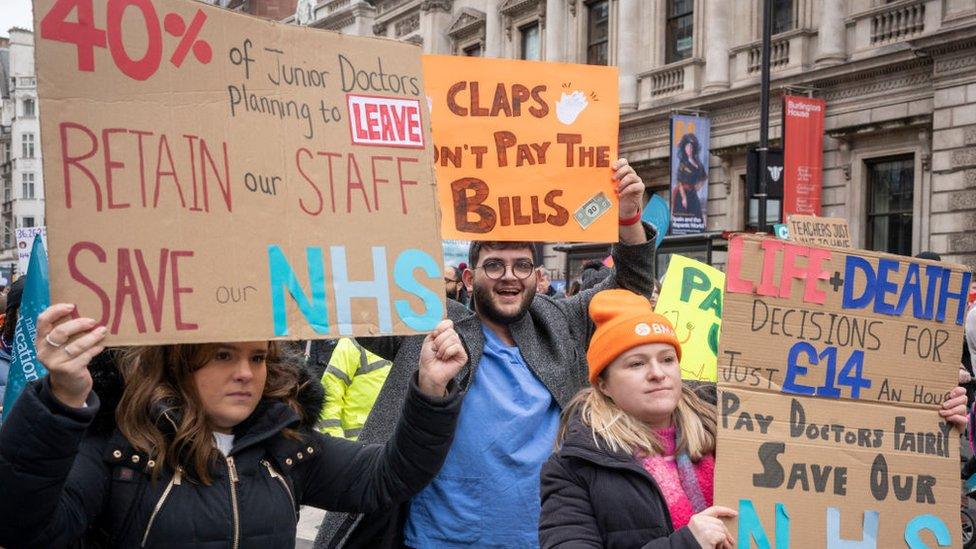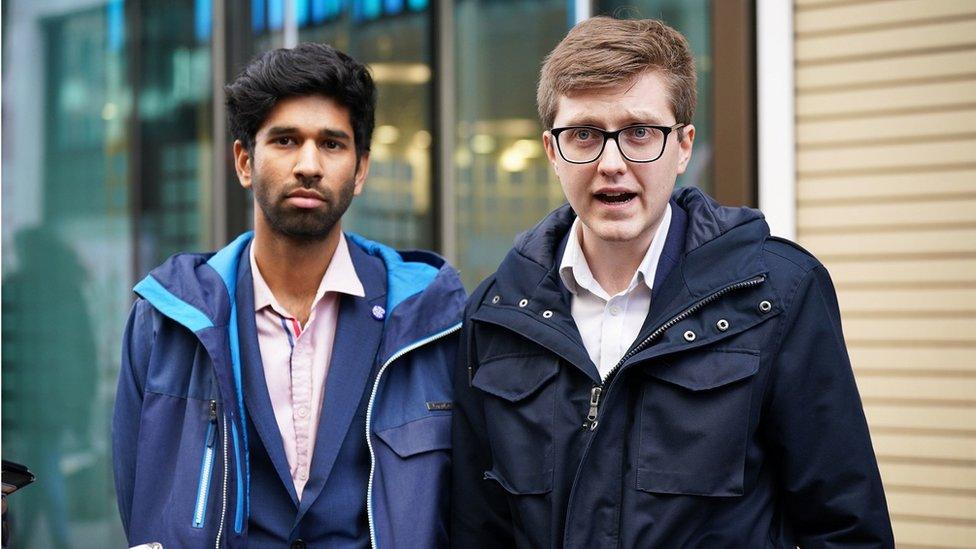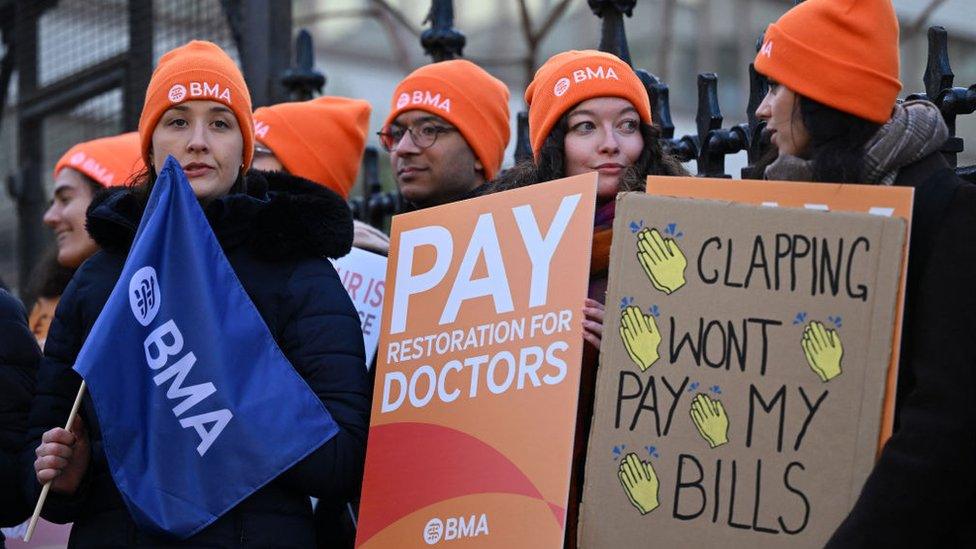Longest NHS doctors strike: What you need to know
- Published
- comments

Thousands of junior doctors are set to go on strike for six days.
Some big disruptions are expected to the NHS this week.
That's because thousands of junior doctors across England are taking part in a six-day strike which begins today - the longest strike action to take place in the history of the NHS.
The strike is organised by the British Medical Association (BMA) which represents doctors and medical students in the UK, and is happening because of arguments with the government over their pay and working conditions.
NHS bosses have said the strike will have a big impact on routine services - things like like planned operations, in hospitals.
This is because many senior doctors will be moved from working in routine services to more urgent areas, like A&E (Accident and Emergency) to make sure that people can still get help in an emergency.
Since March last year junior doctors have taken part in 28 days of strike action, which will go up to 34 after the current strike ends.
Before that, other NHS staff, including nurses and ambulance staff, were also involved in strike action.
Over the past year more than 1.2 million appointments and treatments have had to be cancelled because of the strikes.
Why are junior doctors striking?

Junior doctors make up more than 40% of the medical workforce
Lots of junior doctors in England are striking over their current pay.
The BMA says junior doctors have seen a significant decrease in their salaries over the last 15 years because of inflation.
Inflation is when the cost of goods and services increases over a period of time, making them more expensive. This can have an impact on what people can buy with the money they make from their jobs.
Inflation refers to the rise in the cost of goods and services over a period of time.
The BMA argues that pay rises for junior doctors haven't been in line with the rising rate of inflation since 2008.
It also says the pay issue is making it harder to both hire and keep junior doctors in England, which is having a knock-on effect on the number of doctors working in the NHS.
The BMA is requesting a 35% pay rise for junior doctors in England, but the government has said it can't afford this.
Pay isn't the only reason doctors are striking.
Some say their working conditions are also not ideal and they're not receiving the support they need because lots of doctors across the NHS are currently leaving the profession.
What's been said about the strikes?

Vivek Trivedi (left) and Rob Laurenson (right) are the co-chairs of the BMA's junior doctors' committee
Speaking about the current strike, NHS England medical director Prof Sir Stephen Powis said the NHS was facing a "very challenging" start to a year, due to the strikes and a rise in illness due to the winter.
The government's Health Secretary Victoria Atkins said junior doctors should call off their strike and "come back to the negotiating table so we can find a fair and reasonable solution to end the strikes once and for all".
Dr Robert Laurenson and Dr Vivek Trivedi who are BMA junior doctors committee co-chairmen said the government needed to come forward with a "credible offer".
"Doctors would have liked to start the new year with the hope of an offer on pay that would lead to a better-staffed health service and a better-valued profession."

In Wales, junior doctors are due to take part in strike action later in January, while in Northern Ireland a vote is taking place over strike action.
In August, a pay deal was reached with junior doctors in Scotland. It includes a 12.4% pay increase for 2023/24, and a wage rise of 4.5% for 2022/23 with government ministers also promising to talk about future pay increases.
